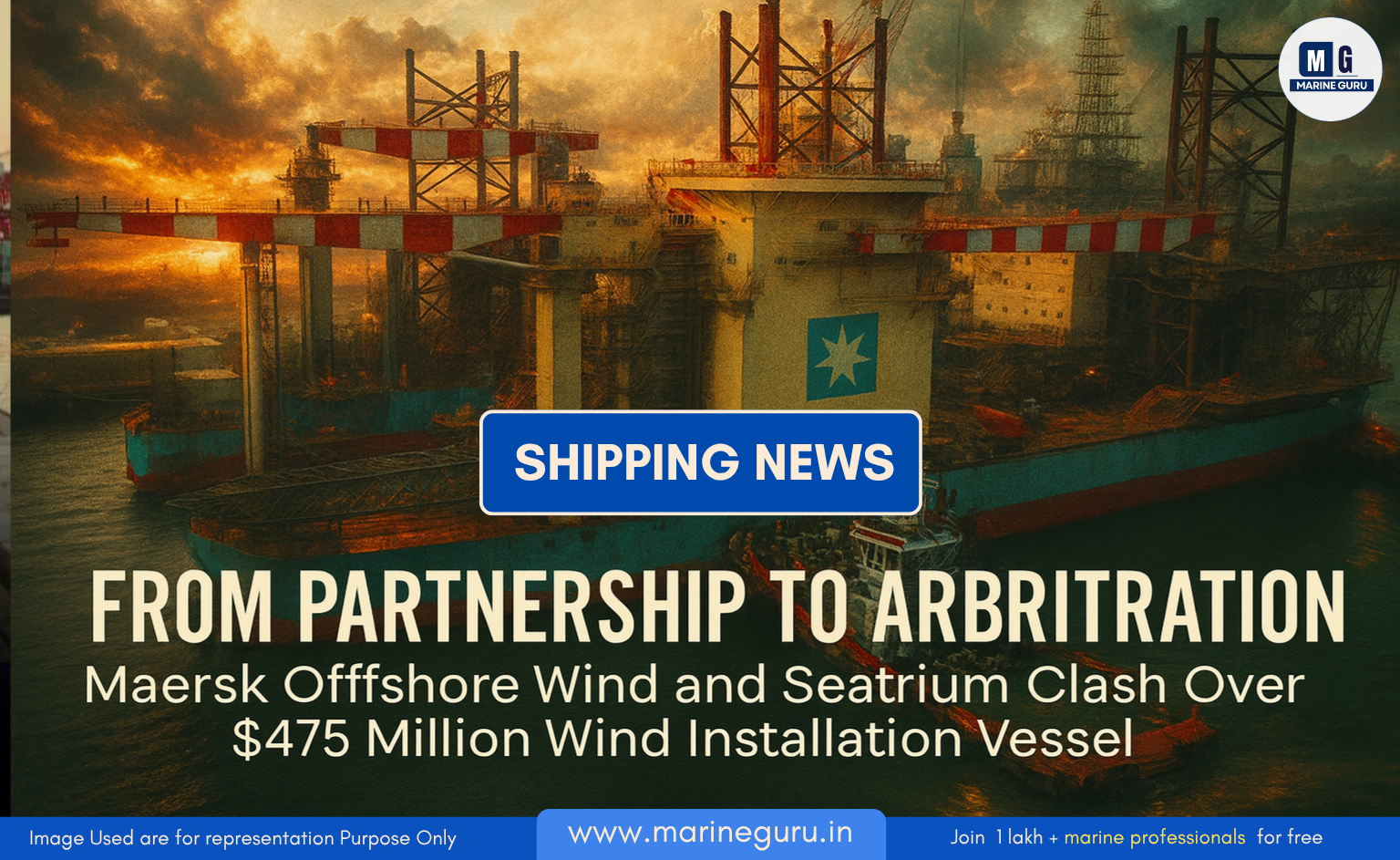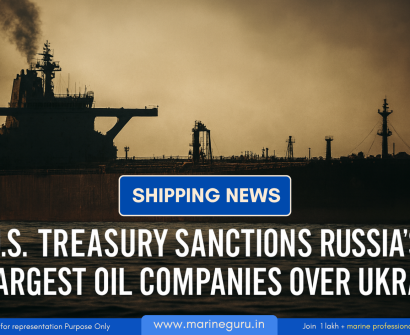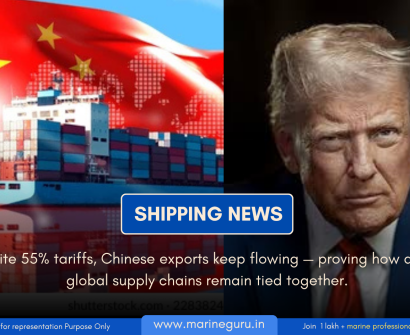“From Partnership to Arbitration” — Maersk Offshore Wind and Seatrium Clash Over $475 Million Wind Installation Vessel

When Cooperation Turns to Conflict
What began as a promising step toward sustainable offshore energy has now entered a legal storm.
On October 22, 2025, Singapore-based Seatrium Limited confirmed that it has received a notice of arbitration from Maersk Offshore Wind over a contract dispute involving a nearly completed wind turbine installation vessel (WTIV) worth $475 million.
The vessel, now 98.9% complete, was built for Maersk’s work on the Empire Wind 1 project off New York — a flagship development for U.S. offshore wind.
Just one day before the arbitration notice, Seatrium had informed Maersk that the vessel would be ready for delivery by January 30, 2026.
What Happened — In 3 Key Points
- Arbitration Filed in London:
Maersk Offshore Wind has filed a notice of arbitration against Seatrium under London Maritime Arbitrators Association (LMAA) terms. - Disputed Termination:
The conflict follows Maersk’s attempt to terminate the contract earlier this month, which Seatrium rejected, calling the move a “repudiatory breach.” - Project Impact:
The vessel was to support the $5 billion Empire Wind 1 project, designed to power 500,000 homes — a project already hit by U.S. regulatory hurdles and funding cuts.
How It Unfolded
The dispute centers around a wind turbine installation vessel (WTIV) custom-built for Maersk’s offshore wind operations.
Originally contracted in March 2022 with Sembcorp Marine Rigs & Floaters Pte Ltd (now part of Seatrium Energy International), the deal aimed to deliver a high-efficiency installation ship — capable of working with feeder vessels for faster turbine component handling.
Earlier in October 2025, Maersk Offshore Wind issued a termination notice, citing alleged contract breaches. Seatrium rejected the termination, maintaining that Maersk had wrongfully ended the agreement.
Seatrium stated it would “vigorously prosecute its position and defend any claims”, adding that legal and financial implications would depend on the arbitration’s final outcome.
Broader Context: A Wind Industry Under Pressure
The Empire Wind 1 project — led by Equinor and BP — has faced a turbulent year under the Trump administration.
In April 2025, the Bureau of Ocean Energy Management (BOEM) briefly halted construction, citing regulatory reviews. The suspension was lifted a month later, but uncertainty continues to cloud the $5 billion project.
Additionally, the U.S. Department of Transportation canceled $679 million in financing for port upgrades tied to offshore wind, tightening the financial space for U.S. developers.
The Empire Wind 1 project remains only 30% complete, despite its goal to power half a million homes by 2027.
The Stakes for Both Companies
For Maersk Offshore Wind, the vessel represents a key asset in its U.S. renewable energy strategy. The design — which uses feeder vessels instead of traditional jack-ups — was expected to improve installation efficiency by 30%.
For Seatrium, the project is one of the largest offshore wind contracts in its portfolio. Losing it could have significant financial and reputational consequences, particularly as Seatrium looks to expand its renewables business.
The company has advised shareholders to “exercise caution” and promised to make further announcements on any material developments.
🛟 The Wake Left Behind
This dispute highlights the growing tension between offshore wind ambition and financial reality.
As projects scale up, so do technical, legal, and regulatory risks — often leaving shipbuilders and contractors caught between deadlines and shifting policies.
For mariners, engineers, and yard workers, the uncertainty surrounding delivery timelines and payment schedules can affect livelihoods and confidence in the sector.
The offshore wind industry’s success depends not just on clean energy goals — but on trust, contract stability, and fair execution at every stage of the build process.
Maersk #Seatrium #OffshoreWind #WindTurbineInstallationVessel #EmpireWind #MaritimeArbitration #Shipbuilding #MarineGuru



